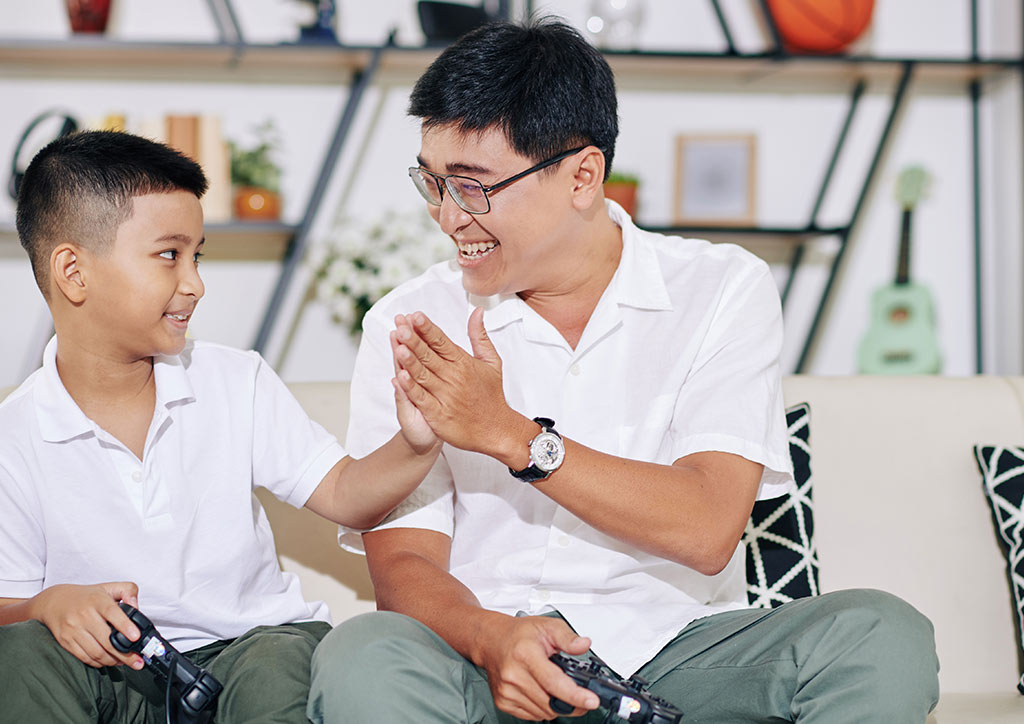Kids
How To Prevent Video Game Addiction in Kids
Before we start saying our kids are “addicted” to video games, here’s a quick rundown of how to prevent it and to know if they are.
Video games are just like chocolates, online shopping, alcohol, and smoking: highly addicting. Anything can be addicting—even eating vegetables can be addicting! But the problem with loosely using the word “addiction” is that many of us forget what the medical and social assumptions are behind the word. There are stigmas and there’s also discounting a lot of the medical research that’s been poured into understanding addiction—including the latest one: video game addiction.

How do we easily define addiction?
The easiest way to define addiction is with these three questions:
- Does it cause any physiological and psychological distress? – People with addictions usually develop strong urges or “compulsions” to do something which cause anxiety when not addressed. Sometimes, it can manifest in the form of bodily problems like headaches, stomach aches, etc.
- Are they unable to do daily functions? – While we all need a reminder sometimes, people with video game addiction may find themselves unable to perform daily functions. These functions include getting up from bed, eating, sleeping, doing their homework, etc. unless they play video games.
- Are they unable to stop themselves? – Misuse is different from addiction. Addiction has people unable to stop themselves from doing something. Even if that one thing is harmful to them. If kids can put down the controller or stop gaming for a few hours to do something else, they’re not addicted.

How are video games addicting?
Video games engage our kids in all sorts of ways. From the bright lights, well-composed soundtracks, artworks, and even storylines—video games offer a lot of immersion and interaction. Well-written storylines, especially when kids can identify with the protagonist, immerse them into the experience even faster.
On top of this, video games offer a group that kids can identify with: the gamers. The gaming community has multiple clusters and groups where kids can meet others like themselves. This works well, especially during the pandemic when physical social gatherings are risky. But the fear of losing those friends can look like an addiction to video games. Usually, talking to our kids about it can either soothe our anxiety about them being addicted or nip it in the bud if they are.
How can we prevent video game addiction in kids?
There are several ways to prevent video game addiction in kids. Some of them may sound counterintuitive but they will make sense:

1. Get into the game yourself
Sometimes, understanding and playing the video game yourself will give you a better idea of what kind of community your kids are in. The biggest source of our fights with our gamer kids is when they don’t come right away when we call because we’re in the middle of the game. But the truth is, the kids treat the video game similar to a physical meeting. We don’t just up and leave people hanging because we got called by our parents. Some games rely heavily on real-time interaction like group work—which is why our kids fear the shame that comes with just abandoning the game when we call them to do something for us.
2. Calling video games an “addiction” in front of our kids.
It may sound counterintuitive but sometimes, negatively framing something constantlu may cause them to dive deeper into it. What our kids see is not the game being destructive or toxic but us as being toxic because the game isn’t badmouthing parents; we’re badmouthing the game. Instead, get straight to the point about what you need. Like if your gamer kids are playing something, say straight up, “Hey, after you’re done with that game, I’ll need you to do (insert chore) for me.” If they don’t show up in 30 minutes, remind them again.
There’s an old proverb saying that goes, “Even Buddha’s face, only until 3 times”. Or, “A Buddha only forgives 3 times.” This can also serve as a limit as to how many times you can call them before disciplining them for their misbehavior.

3. Find books that have the same genre as their video games.
Sometimes, we need to approach video games as an “interactive book”. There’s the story, art, and music. Books don’t have that sadly. However, a lot of video games do publish books about the story behind the video game world. If the kids are into Warcraft, there are a lot of books about it. Even Minecraft has its own book! From there, you can eventually balance their screen time with books.
4. Doing an activity that is equally adrenaline-inducing and mentally challenging.
Video games can make the body summon a lot of adrenaline which we know is responsible for producing endorphins or the happy hormones. It may sound strange because the body isn’t moving but the mind is. As long as the mind perceives a level of stress, adrenaline will release to help their minds keep up. Cooking can be one of those adrenaline-inducing activities especially if kids love playing Cooking Mama. Or gardening, if they’ve been playing Stardew Valley or Harvest Moon for the nth time.
5. Find out what our kids like about the game.
A lot of gamers end up getting into contact sports because of the video game they played. Some gamers take up swordsmanship, fencing, and even kendo because they get curious about being involved in combat. Video games are always a simulation of what happens in real life and there will always be a counterpart.

Preventing video game addiction means reframing addiction
By moving the efforts in a more positive direction, video game addiction becomes less. Kids become addicted to video games because of the many things they can do with little effort. It also allows them to experiment with things without suffering the consequences. Plus, it has been proven that video games assist in keeping our kids sane throughout the pandemic.
More about video games and kids? Here are more stories!
How To Stop Our Gamer Kids’ and Teens’ Rage
This Gamer and First-Time Dad Shares The Importance of Self-Awareness
Is Gaming Really Bad For Kids? Here’s What Parents Need To Know





